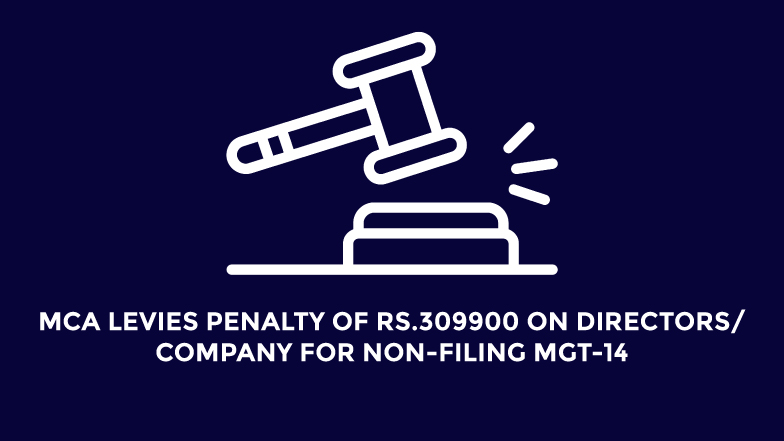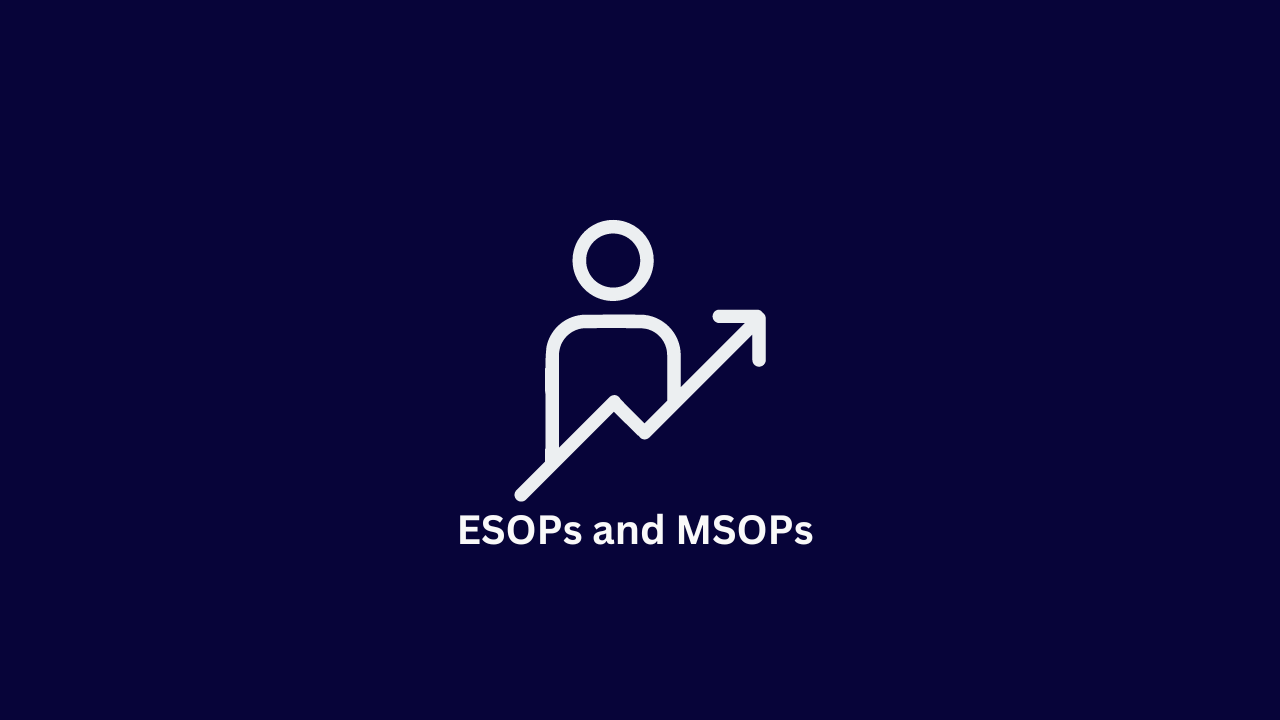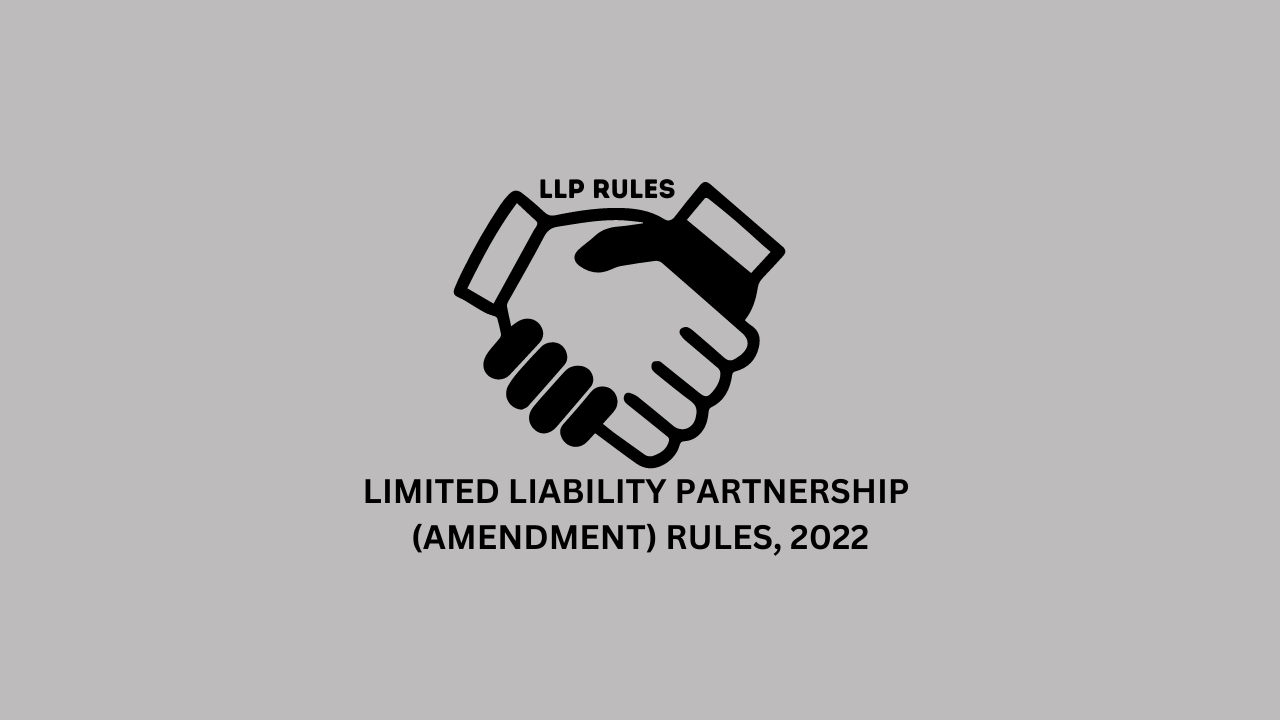
MCA fines directors and companies Rs. 30,9900 for failing to file MGT-14.
In the case of CIAN HEALTHCARE LIMITED, the Ministry of Corporate Affairs (MCA) fined the directors and company Rs. 30,9900 for failing to file MGT-14.
The applicant corporation and its officers are subject to fines under section 117(2) of the Act for failing to complete Form MGT-14 within the allotted time frame as specified in the Act, in violation of section 117(3)(c) of the Act.
In accordance with Rule 3(12) of the Companies (Adjudication Of Penalties) Rules, 2014 and the proviso of the said Rule, as well as Rule 3(13) of the Companies (Adjudication Of Penalties) Rules, 2014 r/w General Circular No. 1/2020 dated 02.03.2020, a penalty of Rs. 309900 is hereby imposed on the officers in default for violation of section 117(1) of the Act. This is in the exercise of the powers granted to the undersigned by Notification dated 24th March 2015, and after taking into consideration the submissions made by the Noticee(s) and the factors mentioned above.
According to Rule 3(14) of the Companies (Adjudication Of Penalties) Rules, 2014, the Noticee(s)/applicant(s) must only pay the penalty through the Ministry of Corporate Affairs online.
When two businesses merge, their boards of directors authorise the union and ask the shareholders for their consent. For instance, in 1998, the Digital Equipment Corporation and Compaq entered into a merger agreement wherein Compaq acquired the Digital Equipment Corporation. Later, in 2002, Compaq and Hewlett-Packard combined. CPQ was Compaq’s pre-merger ticker symbol. The present ticker symbol (HPQ) was created by combining this with the Hewlett-Packard ticker sign (HWP).
In a straightforward acquisition, the acquiring business buys the bulk of the acquired company, which keeps its original name and organisational structure. The 2004 acquisition of John Hancock Financial Services by Manulife Financial Corporation, in which both businesses kept their names and organisational structures, is an illustration of this kind of deal. Six By using a whitewash resolution, the target company may demand that the purchasers guarantee that the target business will continue to operate profitably for a certain amount of time following acquisition.
By merging key operations and doing away with outdated corporate frameworks, consolidation results in the creation of a new corporation. Following their acceptance, shareholders of both firms will get common equity shares in the combined company. The consolidation requires their permission. For instance, the 1998 announcement of a merger between Citicorp and Travellers Insurance Group led to the creation of Citigroup.
In a tender offer, one business proposes to pay a certain amount instead of the going rate for the other business’s outstanding stock. By passing the management and board of directors, the purchasing business makes the offer directly known to the other company’s shareholders. For instance, Johnson & Johnson submitted a $438 million tender offer to purchase Omrix Biopharmaceuticals in 2008. By the end of December 2008, the agreement had been finalised when the company accepted the tender offer.
An asset acquisition occurs when a business directly buys the assets of another business. The shareholders of the company whose assets are being acquired must provide their permission. During bankruptcy procedures, it is common for other companies to bid for different assets of the insolvent company. The bankrupt company is then liquidated upon the ultimate transfer of assets to the purchasing firms.
In a management acquisition, which is often referred to as a management-led buyout (MBO), the executives of one firm acquire a majority stake in another, therefore bringing it private. In an attempt to assist with financing a transaction, these former CEOs frequently collaborate with financiers or former corporate officers. These M&A deals usually require the approval of the majority of shareholders and are financed mostly through debt. For instance, Dell Corporation declared in 2013 that its founder, Michael Dell, had purchased the company.








